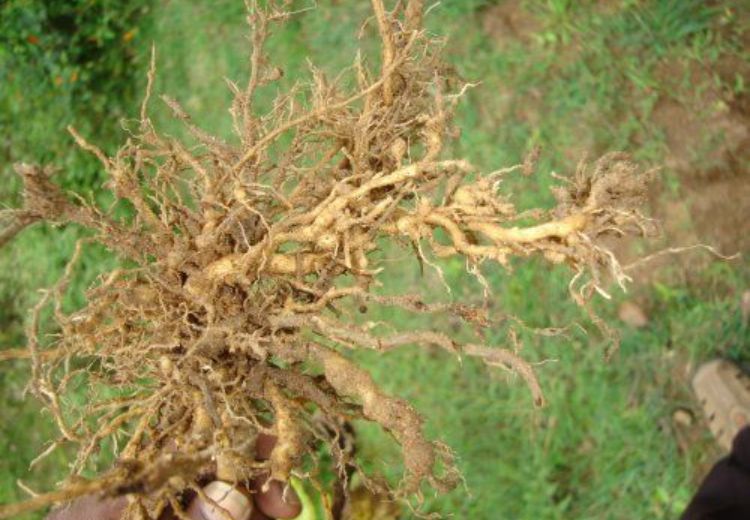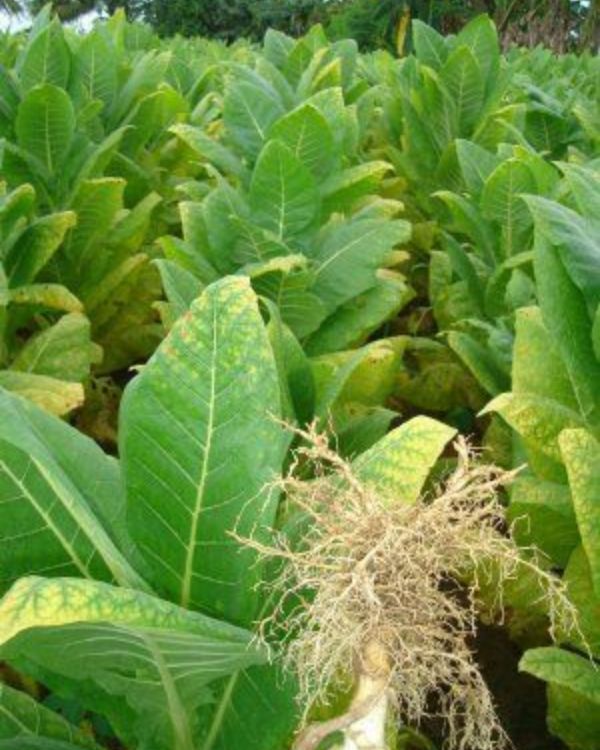Diseases and Pests
Nematodes
Nematodes are microscopic round worms, of which, several types can attack tobacco plants. The most common are the root knot nematodes, which feed on the roots and can cause stunting, pale color, irregular plant growth, as well as excessive wilting during the day and poor response to fertilizers.
The problems generally occur in spots, not being uniform in the field, showing plants deficient in nitrogen and potassium, with firing of leaf tips. In some spot plants may show severe symptoms, while other spots show no signs of any attack. A detailed root analysis and soil samples for nematode analysis, are necessary for a correct diagnose. It occurs more frequently in warm climates and sandy soils. High temperatures accelerate the life cycle of nematodes.
There are several cultivars resistant to Meloidogyne incognita, races 1 and 3; however, damages caused by other types have been rising year after year. Besides the M. incognita, the most common types are Meloidogyne javanica and Meloidogyne arenaria. ProfiGen runs a hybrid development program, which, in addition to their resistance to races 1 and 3 of the M. incognita group, are also tolerant to the other two types.
These nematodes do not infect the roots of grasses; therefore, crop rotation with some of these grass species might benefit nematode management practices.
All Flue-cured hybrids released by ProfiGen are resistant to M. incognita races 1 and 3 and the ones listed are also tolerant to M. javanica and/or M. arenaria types.
For Burley, ProfiGen has several hybrids resistant to M. incognita races 1 and 3 and also options with tolerance to nematodes M. arenaria and M. javanica.
Symptom disease pictures:
See also
-
Diseases and Pests
- Cucumber Mosaic Virus - CMV
- Nematodes
- Potato Virus Y - PVY
- Yellow Stunt
- Diseases and Pests
- Bacterial Wilt
- Tobacco Mosaic Virus - TMV
- Curly top - BCTV
- Tomato Spotted Wilt Virus - TSWV
- Black Shank
Related products
-
PVH2233
PVY - Resistant
-
PVH2310
Early maturity
-
HB4151P
Fusarium and Bacterial Wilt - Tolerant
-
HB4194P
Nematode - Resistant
-
HB4198P
Nematode - Resistant
-
HB4266P
Nematode - Resistant
-
HB4488P
Nematode - Resistant
-
NC4
Nematode - Resistant




